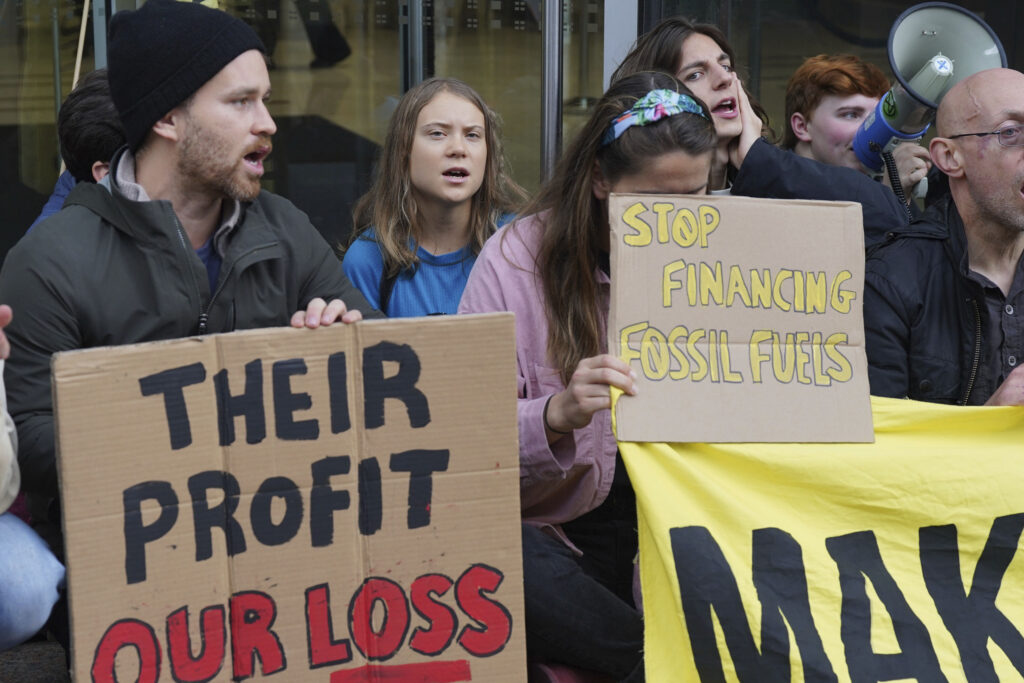
The most vociferous crusaders in the ostensible campaign against climate change often sound less concerned with tackling greenhouse gas emissions and more with undermining pro-growth capitalism. Introducing her magnum opus, The Climate Book, anti-global warming avatar Greta Thunberg blamed the phenomenon on “racist, oppressive extractivism that is exploiting both people and the planet to maximize short-term profits for a few,” calling for a total upheaval of the “the whole capitalist system.”
The grand irony of the 21-year-old Swedish activist’s thrust is not just that she and so many of her ilk have hijacked the real problem of human-caused climate change as a Trojan horse for their left-wing economic agenda. Rather, it is capitalism, not collectivism, granting humanity our greatest hope of overcoming climate change. And already, the free market has achieved quite a great deal for the environment.

American carbon dioxide emissions per capita are down to their lowest level since 1913, or when we still crossed the continent by steam locomotives burning wood and the ocean by steamships burning coal. Since 1990, the economy has nearly tripled in real terms, while annual greenhouse gas emissions have decreased by 2.3%. Total annual carbon dioxide emissions from consumption — that is, emissions generated during the production of goods and services we produce, so emissions that we can’t simply offshore to poorer countries — have fallen by 20% since 2005 in absolute terms.
Now, Benji Backer, the founder and executive chairman of the American Conservation Coalition, is trying to reclaim the climate crusade from degrowthers like Thunberg in his new book The Conservative Environmentalist. Speaking in the language of economic reality rather than emotional radicalism, Backer lays out an alternative climate framework that channels the power of market forces rather than trying to collectivize them.
Why not the Thunberg approach? Backer does the math, calculating that the Green New Deal, the whopping $93 trillion proposal authorized by socialist Rep. Alexandria Ocasio-Cortez (D-NY) and championed by Sen. Bernie Sanders (I-VT), would cover less than a third of the emissions categories related to climate change. Even if it were fully enacted and effective, Backer calculates it would only reduce global emissions by 4.34% worldwide.
“To put this into even better perspective, it costs between $5 and $100 per ton removed of carbon when reducing the size of forest fires,” Backer writes. “When you calculate what the Green New Deal would cost per ton of carbon removed, it’s a colossal number, between $10,000 and $15,000. And that’s assuming all global emissions were eliminated under the plan, which, as we’ve covered, isn’t anywhere near possible.”
Backer instead proposes that environmentalists incentivize innovation when helpful and get the government out of the way when necessary. For example, whereas the California Environmental Quality Act is often weaponized to block “climate-friendly projects such as more bike lanes, bus rapid transit, and wind turbines” in the Golden State, Backer points to Arizona. California’s southwest neighbor has created America’s first car-free apartment community merely by relieving regulations.
And not all incentives or innovations are created equal. Backer lauds the potential of nuclear and geothermal energy, two sources that require deregulation from the government and investment from private sector partners. Backer points out that solar panels and electric vehicles are far from the panaceas the Left makes them out to be. Both technologies are highly dependent on Chinese lithium mining and factory production, and the net benefit of EVs is only as great as the energy source of domestic energy grids.
Crucially, Backer embraces fossil fuels as a part of our current reality, a key to a future solution, and not created equally across continents.
CLICK HERE TO READ MORE FROM THE WASHINGTON EXAMINER
Oil from communist Venezuela produces “about twice the total emissions per barrel as oil from, say, Saudi Arabia,” conveniently an ally of ours. And Russia’s “leaky, antiquated gas production system has been known to produce methane emissions eight times higher than those from the European Union or U.S. domestic gas and is estimated to accelerate climate change twice as much as the coal it’s meant to replace.”
The most doctrinaire of us free marketeers may not endorse every proposal Backer makes, but Backer’s book is a welcome response to the ecosocialism spewed by AOC and company and a reminder that capitalism is part of the cure for climate change, while bad and big governments across the globe are too often the cause.





